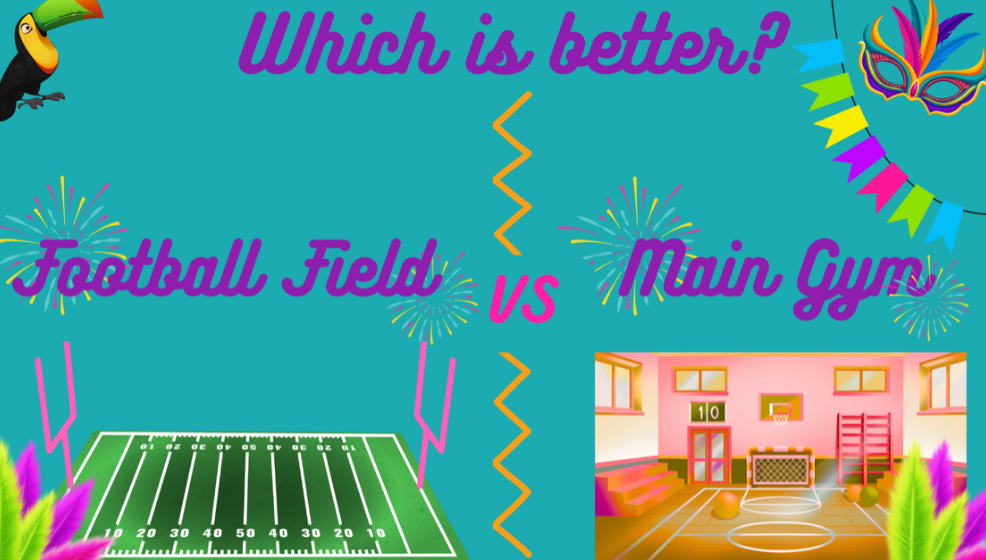Pixar’s ‘Turning Red’ turned heads– especially mine.
Creator: Pixar | Credit: PIXAR
Pixar’s “Turning Red ” skipped theaters and went straight to Disney+ on March 11. The official Pixar “Turning Red” Twitter account shared that this movie is the number one Disney+ film release globally.
April 4, 2022
Following the hit movies “Luca” and “Soul,” Disney’s Pixar takes a new turn with “Turning Red,” a story following the Chinese-Canadian Mei Lee and her overprotective mother Ming, as Mei navigates turning into a giant red panda with her developing emotions. The animated movie was released on March 11 on the streaming service Disney+. The movie was directed by Chinese-Canadian Domee Shi, who also directed the Pixar short “Bao.”
From the first minute, I knew this movie would be unlike any other Disney movie. The over-colorful animation and unique voices made this specific movie stand out amongst others. I’ve noticed that the most recent Disney movies have not been afraid to show the protagonist’s “quirkier” side, notably with Mirabel in Disney’s hit movie “Encanto.” I really enjoyed seeing new facial expressions from the animated characters, which especially helped focus on the movie’s main motivation of highlighting new changes that come with puberty.
Also similar to “Encanto,” “Turning Red” focuses on generational trauma, but with a different culture and a different way. While “Encanto” focuses on Mirabel searching for her “special gift,” “Turning Red” focuses more on Mei’s journey to womanhood. With the red panda being a symbol for imperfection, hormones, and changing emotions, I appreciated how this movie touched on subjects usually avoided by the media. On top of that, I thought that the combined lessons of puberty and growing up in an Asian household were addressed. As an Asian woman myself, I really connected with Mei’s struggles with juggling an overprotective mother and maintaining friendships. I especially connected to the scene where Mei had to choose between telling the truth to her mother or keeping a healthy friendship. These tough situations where there might not be a clear answer are vaguely portrayed in these light movies meant for younger audiences, and I believe that showing these choices would have helped me realize that I am not alone in the struggles when I was a kid.
However, what really stood out to me was how they portrayed the mother’s point of view. While Ming was the main antagonist, I enjoyed how she was not painted as a villain. Ming as a young girl is shown crying for the same reasons Mei was, connecting them in the way that they have both felt the same way about their own mothers. I think oftentimes people forget that parents have had trouble with their own as well, which is how generational trauma often starts. Opening this side of the story prompted me to think who was really responsible myself.
After more thinking I realized that there is no answer– and that uncomfortable position is what I appreciated about the movie. While Ming was painted as the overbearing mother, Mei’s lack of communication and betrayal showed her flaws as well. However, I do believe that sometimes the metaphor was flawed as well. Toward the beginning of the movie, I fully believed that the panda was a symbol for puberty, as they focused on periods (hence the “red” panda). But towards the end, the main theme was that Mei needed to “accept the panda,” no matter how hard it was to tame it. I saw this more as a metaphor for imperfection, not necessarily something that comes just with puberty.
At the end of the movie, Mei keeps her panda within her, while Ming does not. I hoped throughout the movie that Ming keeps her panda as well, as she deals with her own generational trauma. Ming keeping her panda just showed me that Ming was a static character even though she was not. I would have liked seeing Mei and Ming both navigating the struggles of a giant panda together, furthering their bond that was mended in the end.
Director Shi “wanted the red manda form to inspire audiences– especially Asian girls– to take up space.” Overall, I enjoyed that “Turning Red” made me really ponder how different my experiences of puberty were from others. And while it focused on Asian culture, it is a story I believe any gender or ethnicity would enjoy. And while no one will turn into a giant red panda soon, I think that “Turning Red” shows anyone to be unapologetically themselves.







